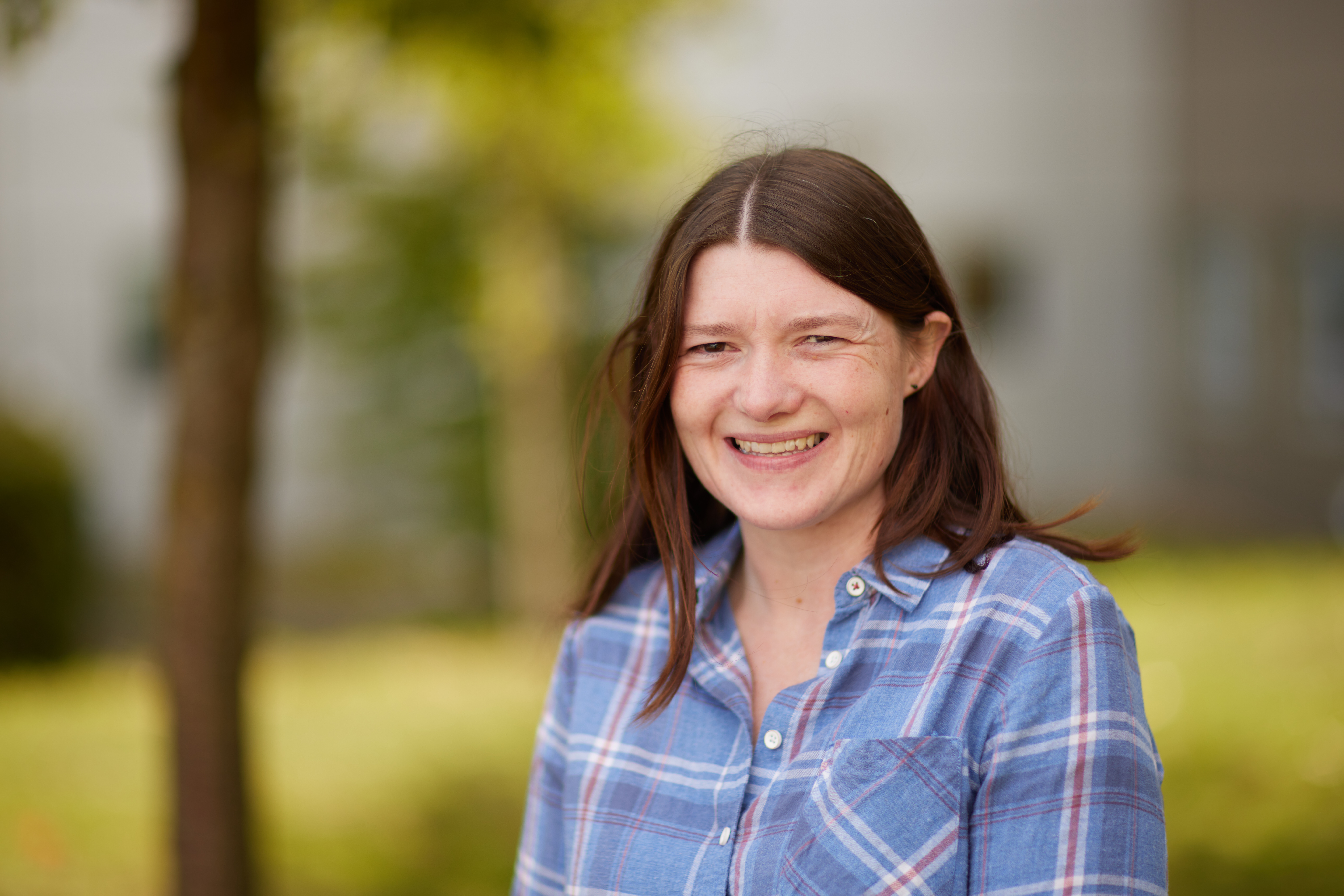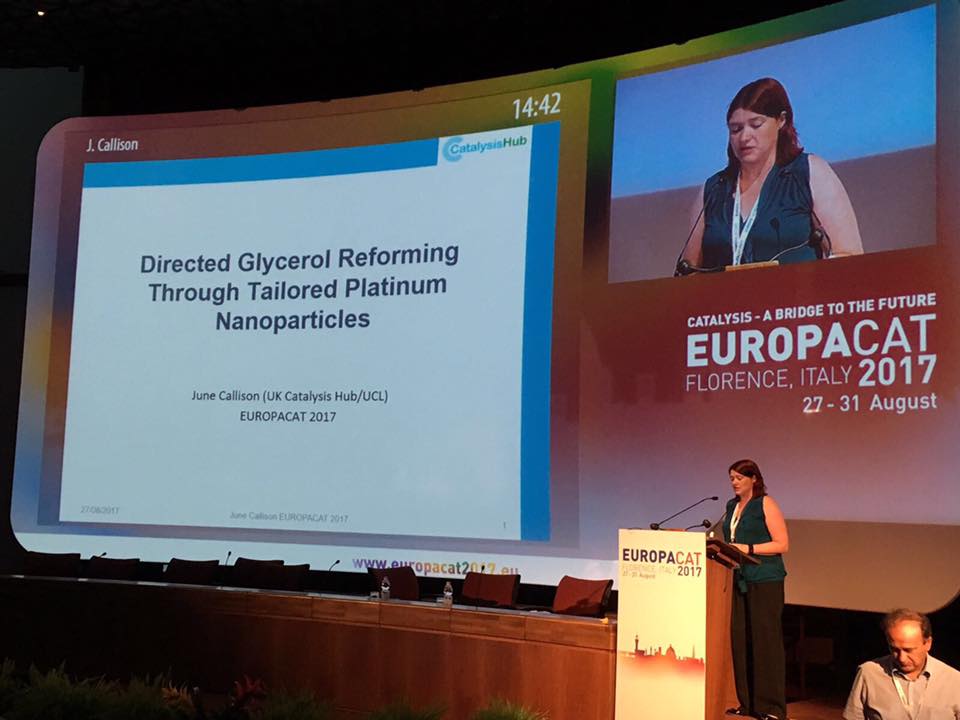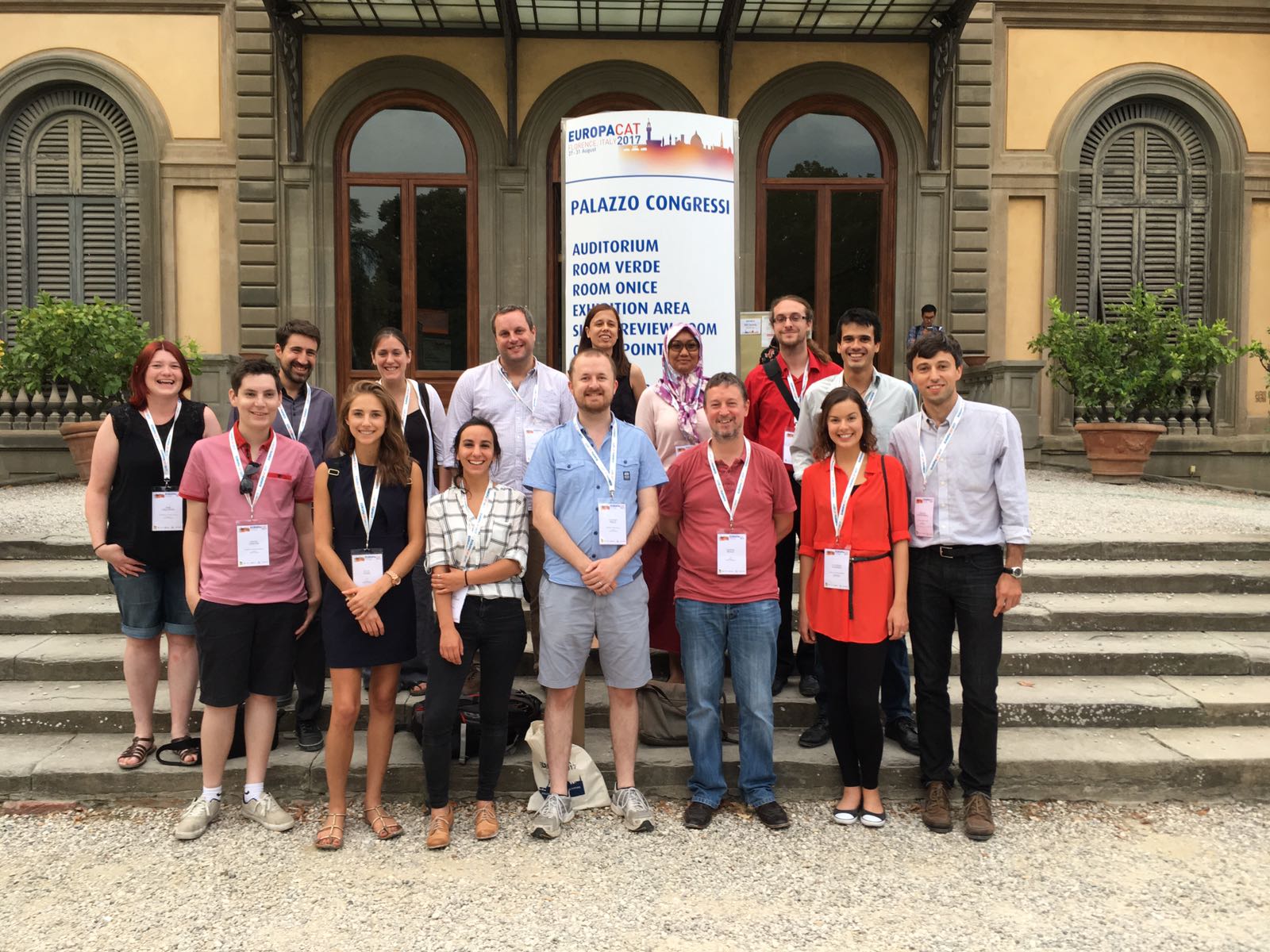The Deuteration Facility has a new manager; please join us in welcoming Dr. June McCorquodale to the team!
Contents:
General Updates
The D-Lab would like to take this opportunity to remind users about the best practices for D-Lab requests. If you require deuterated material for your experiment, it is best to involve the D-lab as soon as possible, preferably before you have even submitted your beamtime proposal, as this will allow for discussions about how long would be expected for synthesis beforehand. This will result in a better estimate for suitable timelines for the experiment. If you leave it later it is strongly advised that you
contact the D-Lab team as soon as possible. For compounds which are routinely available in the lab, it is still worth letting the team know, especially if you require relatively large quantities. More specialised chemicals will require more time and effort to synthesise; these would potentially be more of a collaboration, rather than a service provided. As such, in addition to the general citing of the lab, it may also be nescessary to include some members of the Deuteration team as co-authors. This can be discussed when discussing the requirements.
As a further reminder, it should be noted in all papers, presentations, posters and any other
publications that use materials from the D-lab that such materials were obtained from the D-Lab, or potentially co-authorship if a suitable contribution has been made by the lab staff. A suggested acknowledgement would look like this:
The authors wish to thank the ISIS Deuteration Facility, who provided [insert chemical names here] in support of these experiments.
Publications
The D-Lab team has chosen to highlight a paper multiple members have contributed to: "Gram-Scale Synthesis of Chain-Deuterated Sphingosine and Its Derivatization to Produce Ceramide, Sphinganine and Sphingosine-1-phosphate" in the European Journal of Organic Chemistry. The paper describes the synthesis of
sphingosines with deuterated chains at the gram scale, starting from protiated fatty acids. Sphingosines are crucial for various cellular functions. The deuterium content was characterised by H-NMR and high resolution mass spectroscopy.
Industrial Placement Student Positions
There are currently two industrial placement opportunities within the D-Lab for the period 2024-2025. The adverts are currently live, and both close on the 29th of October. Both are practical, hands-on chemistry-based projects.
The first,
here, will involve researching synthesis routes for deuterated Oleic acid. For more details, please check out the
job advert.
The second,
here, will involve researching deuteration of monomers and polymers. Fore more details, please check out the
job advert.
Introduction to Dr. June McCorquodale, the new D-Lab manager
In order to introduce the new D-Lab manager to the wider community, we decided it would be useful for June to write her own introduction:

June
McCorquodale, the new D-Lab manager.
I have recently joined the team as the ‘new Sarah’, taking over as Manager of the Deuteration Laboratory. Some of you may already know me in my previous guise as June Callison as I have been on site for the past 9 years working for the UK Catalysis Hub, based at the Research Complex at Harwell. In taking over this new role I have also taken the opportunity to change to my married name, McCorquodale, an act that I am already regretting!
I am originally from a small town in Scotland called Airdrie, not far from Glasgow, where I did my undergraduate at Glasgow University and continued on to complete a PhD under Professor David Lennon. This is where the links to ISIS started as I was involved in an experiment on TOSCA during this time. I then went on to work in industry for a couple of years with a company called Teknek, who produced high tech cleaning machines for the electronics industry, amongst others.
I found that I had a desire to go back into research and managed to move to the Harwell site through a Research Technician position with the Catalysis Hub, working my way up to Lab Manager for the second half of my time there. Some of the highlights from working at the Hub include a trip to Florence to present my work on a Glycerol reforming project at Europacat1 and a Nature paper from a collaboration with The University of Bristol and Diamond.2

June at the Europacat conference in 2017.
For my new role at ISIS, I am looking forward to getting things up and running in the newly refurbished D-Lab – watch this space! I hope that my experience in managing the Catalysis Hub labs will help to provide a good working experience for our staff members and to allow a professional service to both internal and external users. I would also like to continue to promote the great work that the D-Lab do and ensure that is communicated within ISIS and to the wider community.
Working at Harwell also allows me to enjoy activities outside of work including football and rounders. Along with playing football at lunch and on Sundays for a local ladies team, I also follow both my local (Airdrieonians, Oxford United) and international (Scotland) football teams. I am a fully-fledged Tartan Army member and often follow Scotland abroad. This has led to some interesting experiences and increased my love of travel and appreciation of different cultures.

June (left) at the Europacat conference in 2017.
Please feel free to contact myself of the team with any deuteration requests or to discuss any projects. As a reminder, it is vital to contact us before submission of proposals to discuss the feasibility and timeframe of any synthesis required. All requests for the D-Lab must then go through the ISIS proposal system. We are also happy to support and collaborate with work undertaken at other facilities around the world and can provide facilities for hosting students.
References
1 - Callison, J.; Subramanian, N. D.; Rogers, S. M.; Chutia, A.; Gianolio, D.; Catlow, C. R. A.; Wells, P. P.; Dimitratos, N. Directed Aqueous-Phase Reforming of Glycerol through Tailored Platinum Nanoparticles. Appl Catal B 2018, 238, 618–628. https://doi.org/10.1016/j.apcatb.2018.07.008
2 - Messinis, A. M.; Luckham, S. L. J.; Wells, P. P.; Gianolio, D.; Gibson, E. K.; O’Brien, H. M.; Sparkes, H. A.; Davis, S. A.; Callison, J.; Elorriaga, D.; Hernandez-Fajardo, O.; Bedford, R. B. The Highly Surprising Behaviour of Diphosphine Ligands in Iron-Catalysed Negishi Cross-Coupling. Nat Catal 2019, 2 (2), 123–133. https://doi.org/10.1038/s41929-018-0197-z
For more details on anything included on this page, please
contact the D-Lab shared email address and check out the Deuteration Facility
website.
